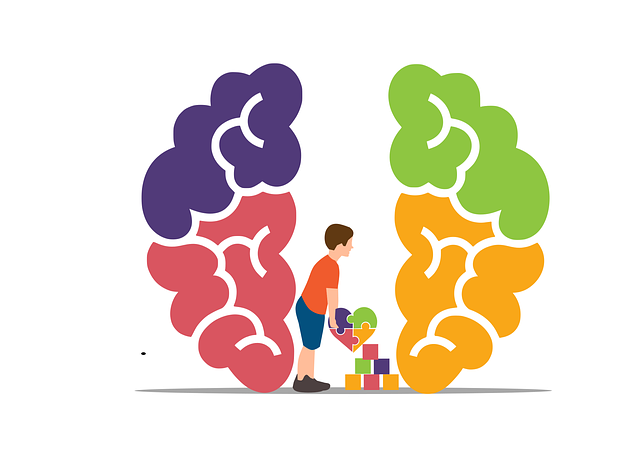Denver Codependency Therapy prioritizes crisis intervention to support individuals in acute distress or trauma. Through structured frameworks, therapists employ tailored methods like stress reduction and compassion cultivation to help clients manage intense emotions, enhance self-awareness, and improve interpersonal dynamics. Post-crisis care focuses on personalized coping strategies and educational resources to prevent relapse and promote long-term mental wellness. Risk management planning, stress management workshops, and advocacy for robust Mental Health Policies contribute to effective crisis intervention and improved therapeutic outcomes.
“In times of crisis, effective intervention can make a profound difference. This article explores the essential role of crisis intervention strategies in Denver Codependency Therapy, offering a comprehensive guide for professionals. We delve into the core principles and provide practical steps to navigate these challenging situations.
From understanding the fundamentals to post-crisis care, this resource covers all aspects critical to sustaining recovery and preventing relapse. Discover how Denver Codependency Therapy techniques empower individuals to overcome crises and foster lasting change.”
- Understanding Crisis Intervention: A Cornerstone of Denver Codependency Therapy
- Practical Steps in Implementing Effective Crisis Intervention Strategies
- Post-Crisis Care: Sustaining Recovery and Preventing Relapse
Understanding Crisis Intervention: A Cornerstone of Denver Codependency Therapy

Crisis intervention is a vital component of mental health support, especially within the context of Denver Codependency Therapy. It involves immediate and targeted strategies to assist individuals facing acute distress or a traumatic event. By employing crisis intervention techniques, therapists can help clients manage intense emotions, prevent further deterioration, and initiate healing processes. This approach is particularly effective in addressing codependency issues, where individuals struggle with unhealthy relationships and emotional patterns stemming from past traumas.
Understanding the nuances of crisis intervention allows practitioners to offer tailored support, incorporating stress reduction methods, emotional intelligence techniques, and compassion cultivation practices. These strategies empower clients to develop coping mechanisms, enhance self-awareness, and foster healthier interpersonal dynamics. Through Denver Codependency Therapy’s structured framework, individuals can navigate their crises more effectively, leading to improved mental well-being and a deeper sense of resilience.
Practical Steps in Implementing Effective Crisis Intervention Strategies

Implementing effective crisis intervention strategies requires a structured approach that can be adapted to various settings, including Denver codependency therapy practices. The first step is risk management planning for mental health professionals. This involves identifying potential crises, assessing vulnerability factors among clients, and establishing protocols for timely intervention. Professionals should create a safe, non-judgmental environment where clients feel comfortable disclosing distressing thoughts or behaviors.
Regular stress management workshops organization can equip therapists with tools to recognize early warning signs of crisis, such as increased anxiety, irritability, or sleep disturbances. These workshops promote self-care practices among professionals to prevent burnout prevention, ensuring they remain resilient and effective in supporting their clients. Through ongoing training and collaborative efforts, mental health professionals in Denver can enhance their crisis intervention capabilities, ultimately fostering a healthier and more supportive therapeutic environment.
Post-Crisis Care: Sustaining Recovery and Preventing Relapse

After an immediate crisis intervention, the focus shifts to post-crisis care, which plays a pivotal role in sustaining recovery and preventing relapse. This phase is crucial for individuals who have experienced traumatic events or mental health crises, offering them the necessary support system and tools to rebuild their lives. At Denver Codependency Therapy, our approach involves creating individualized care plans that cater to each client’s unique needs.
We understand that recovery is an ongoing process, and our goal is to empower clients with coping strategies that promote long-term mental wellness. Through regular sessions, we guide individuals in processing their experiences, managing triggers, and developing healthy behaviors. Additionally, our Mental Wellness Podcast Series Production offers valuable resources for continuous learning and support. Beyond therapy, we also advocate for robust Mental Health Policy Analysis and Advocacy to ensure better access to care and improved community resources, ultimately contributing to burnout prevention and enhanced mental health outcomes.
Denver Codependency Therapy emphasizes crisis intervention as a critical component of effective treatment. By understanding the fundamentals outlined in this article, mental health professionals can implement practical strategies to support individuals during crises. Furthermore, post-crisis care plays a pivotal role in fostering recovery and preventing relapse, ensuring that clients receive holistic support throughout their journey. These evidence-based practices not only enhance individual well-being but also contribute to building resilient communities.














